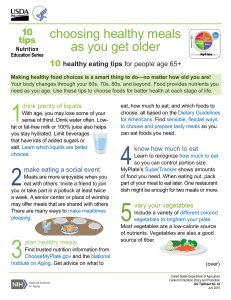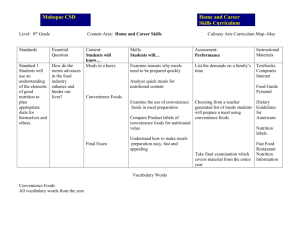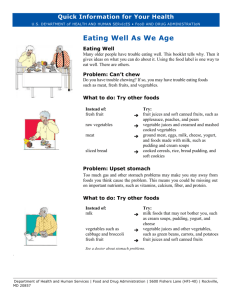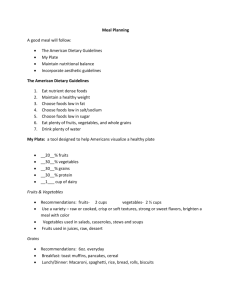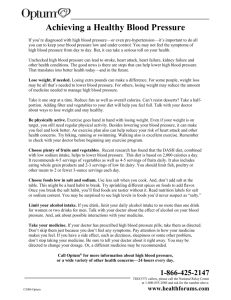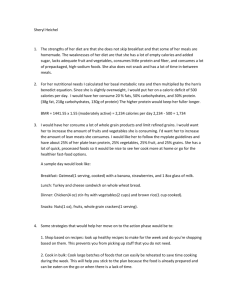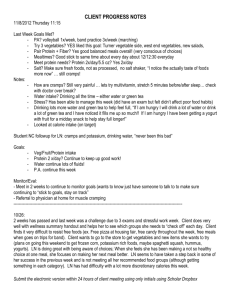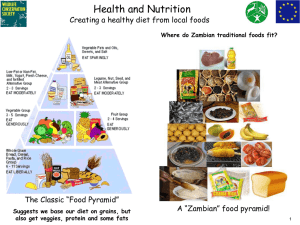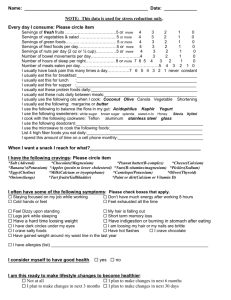File
advertisement
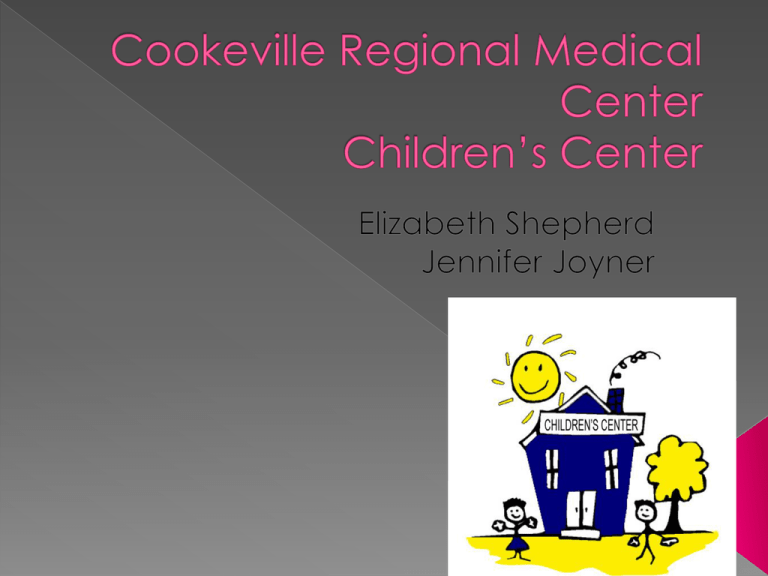
Children Center’s mission statement History of the Children’s Center Strengths and Weaknesses Funding for the Children’s Center Nutrition, Food Funding, and Policies Comparison between the Children’s Center and Creative Learning Our involvement and observations 1. To provide convenient, high quality childcare that will enhance the development of the whole child. 2. To provide a clean, safe environment in which young children can grow and learn. 3. To enhance developmental growth through the use of an age appropriate and challenging curriculum. 4. To promote self-esteem through encouraging self-discipline and self-help skills. 5. To set patterns for positive attitudes toward all new learning experiences. 6. To provide opportunities such as some walking field trips and special guests to enhance the child’s awareness of his/her community. 7. To encourage positive group participation through the development of social skills. 8. To provide outdoor experiences for creative play and development. 9. To provide a variety of nutritional meals and snacks each day. 10. To provide capable, loving educators and caregivers with professional training in Child Development. 11. To offer activities that involve parent participation. 12. To offer daily avenues of communication between parent and teacher. The Children’s Center has been in operation for 21 years Originally, the Center was much smaller and was started for the sole purpose of giving the hospital employees a safe, reliable daycare center for their children The Center has since expanded to hold 99 children, has 11 rooms, and operates five days a week from 6:15 am-5:30 pm (6 pm for CRMC employees) Strengths Close proximity to hospital 80% of hospital employee’s children are able to attend Available to children 6 weeks-5 years of age Weaknesses: Waiting list Portion control The Children’s Center is licensed by the Department of Human Services and is a 3 star facility. The Center does not receive reimbursements from the state or federal government due to the assistance that CRMC gives the center. Funding for the Children’s Center is derived from the childcare fees and allotted hospital budget An Infant Program serving children ages 6 weeks to 1 year. A Toddler Program serving children 12 months to 36 months. A Pre-School Program serving children 3 to 5 years. The Children’s Center orders their food through the FND department of the hospital who orders it through IWC and Robert Orr Sysco They make weekly orders and receive their orders on Thursday of every week Lunch items are catered by the hospital and delivered everyday at 10:30 am Breakfast and Snack items are kept at the center (canned fruit, 4-6 oz juice boxes, crackers, and paper ware) Raw vegetables and fruits that are in season are used as well Family style dining is used Food allergies are catered to and these meals are separated from the other meals. Served to children between the ages of 2 ½ to 5 years old; younger children have pre-portioned meals served to them The family style service is loosely regulated with no real portion control Servings are eyeballed as to what is appropriate Additional servings are granted regardless of the child’s size No foods are forced, only encouraged Mar 2011: $2973.97 Feb 2011: $481.80 Jan 2010: $1708.40 Dec 2010: $1846.32 Nov 2010: $1081.96 Oct 2010: $1369.85 Sep 2010: $1541.88 Aug 2010: $1243.84 July 2010: $1685.63 June 2010: $2200.84 May 2010: $2625.22 Apr 2010: $2037.93 Mar 2010: $1778.26 Feb 2010: $1103.51 Jan 2010: $2021.92 Average for the past 15 months: $1713.42 The director’s qualifications or experience, education, and training The education, training, and previous work experience of teaching staff Developmental learning Parent and family involvement Ratios and group sizes The center’s pay and benefit plans for staff Program assessment (on-site observation) Children’s Center No reimbursements Family style service Hot lunches catered Creative Learning Receives reimbursements All foods & drinks portioned All foods cooked and prepared onsite Menu items are comparable but not portion sizes We planned a teaching session to teach children about vegetables with the idea that if they can identify healthy foods then they are more likely to choose those foods We took coloring sheets & props and actively involved the children in telling us what they knew about vegetables The children were eager to tell us everything they knew and let us know that they eat their vegetables everyday
